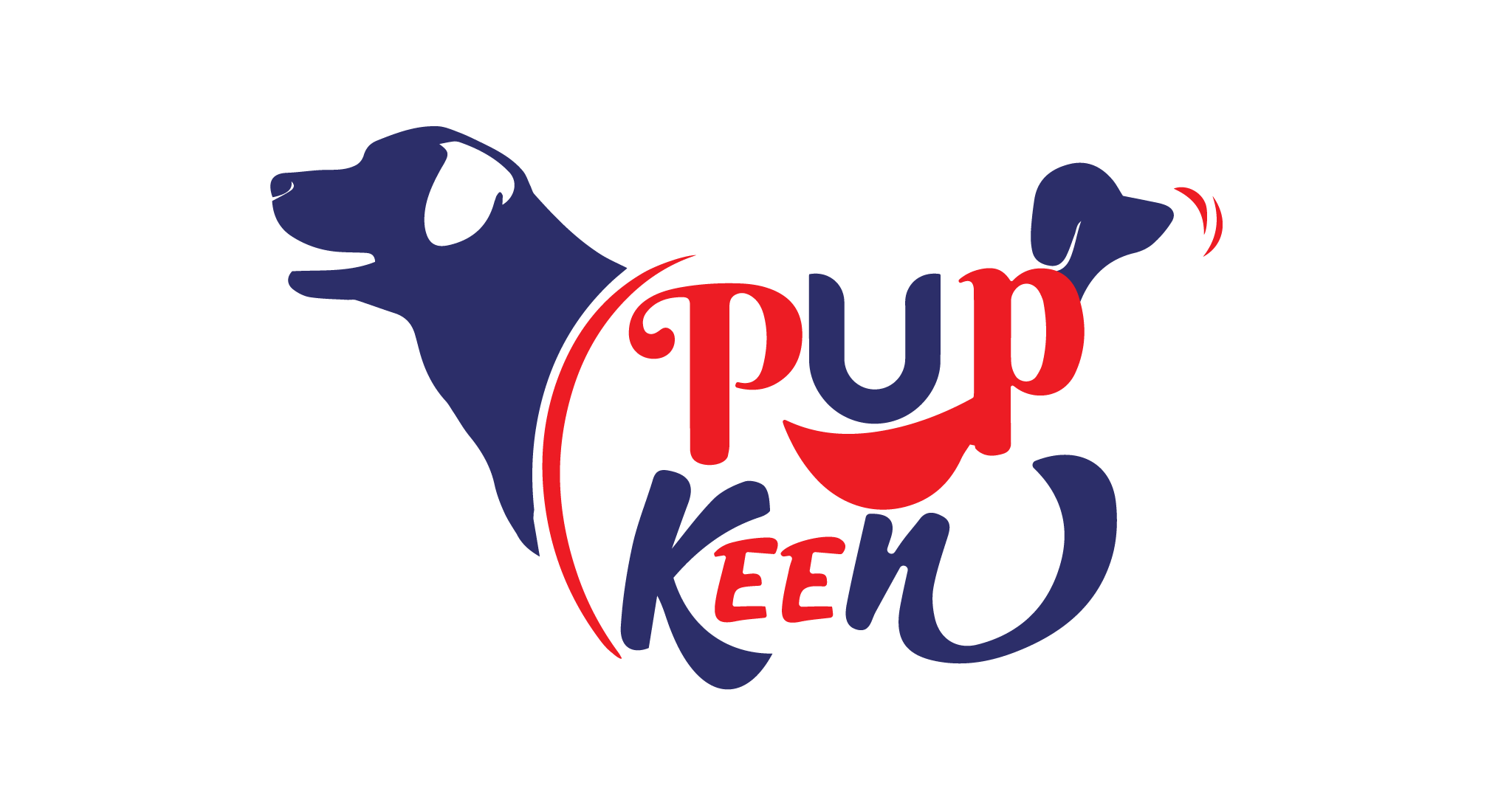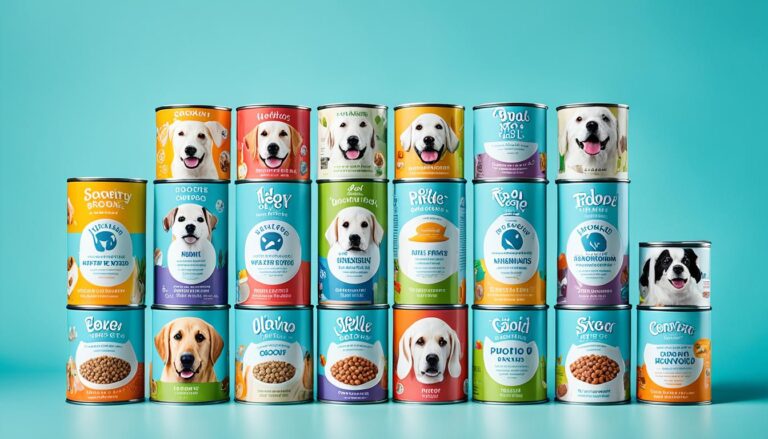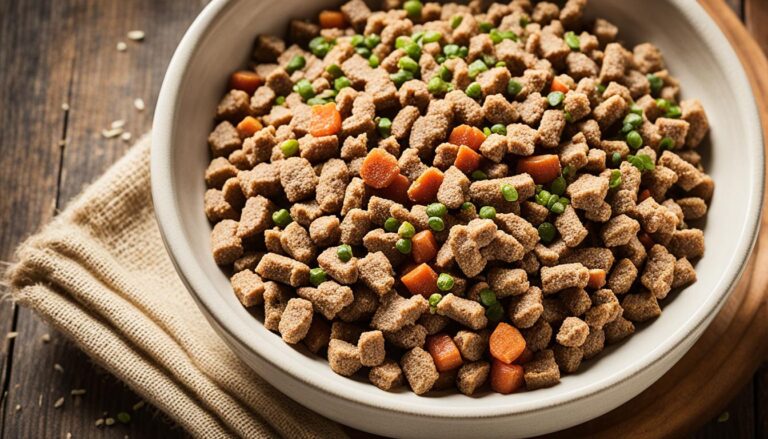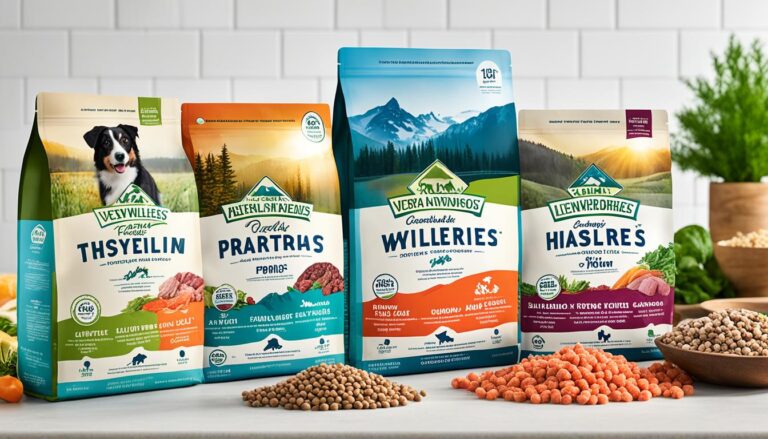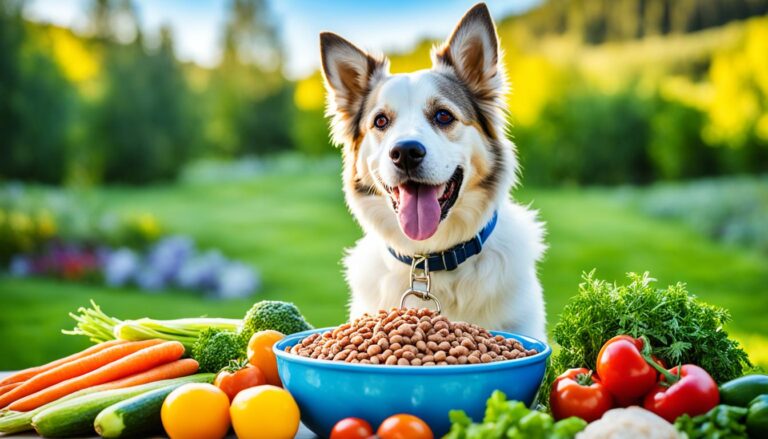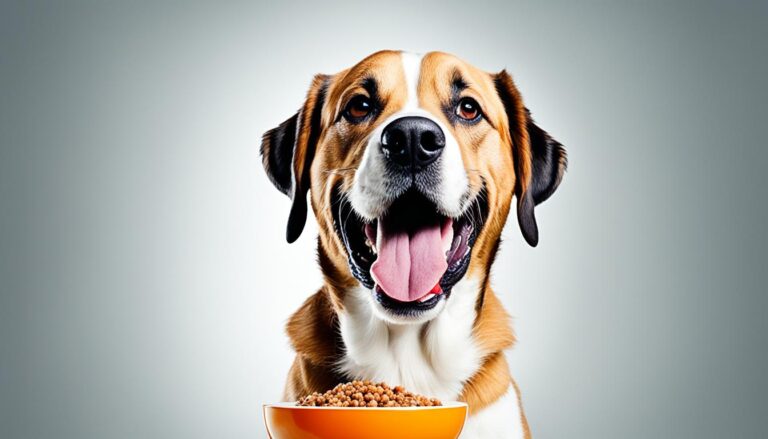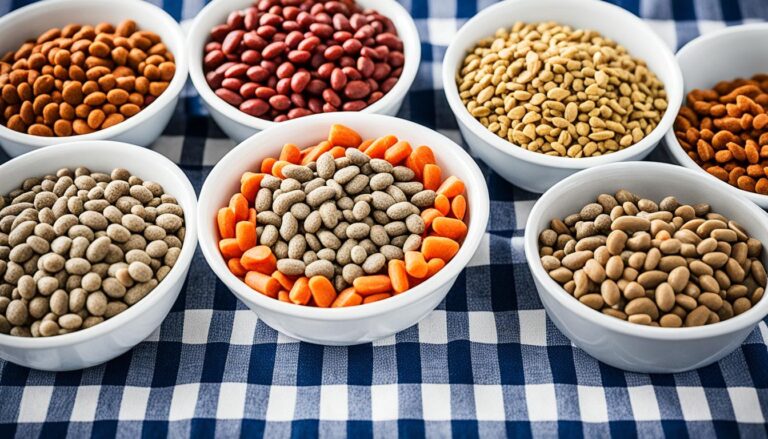How to Create a Balanced Diet for Dogs with Kidney Disease
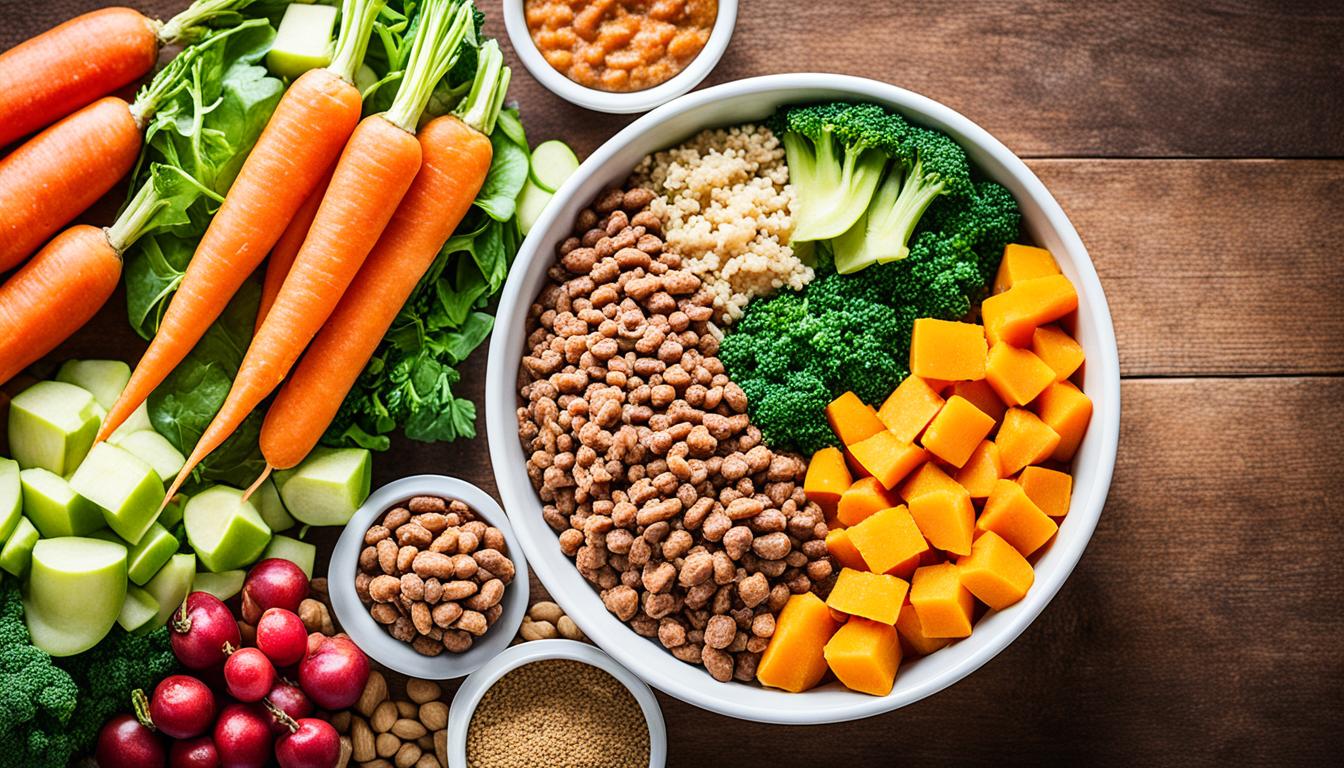
Did you know 10% of dogs over 15 years old have chronic kidney disease (CKD)? That’s how important it is to know how to feed dogs with kidney disease. As a pet owner I’ve found the right diet is key to helping our pets live better.
Creating a diet for dogs with kidney failure is more than just cutting out some foods. It’s about finding the right balance to keep their kidneys healthy and give them the nutrients they need. Making a diet for a dog with kidney disease is hard but it’s very important.
Kidney diets for dogs have less protein, sodium and phosphorus than regular dog food. They have more omega-3 fatty acids. What’s interesting is dogs on these diets lived 13 months longer than those on regular food. That’s more time for snuggles and play!
Key Takeaways
- CKD is the most common kidney-based disease in dogs
- A balanced kidney diet can significantly improve a dog’s lifespan
- Protein, phosphorus, and sodium levels need careful management
- Omega-3 fatty acids play a crucial role in kidney health
- Hydration is essential in managing kidney disease in dogs
- Regular vet check-ups are vital for monitoring and adjusting the diet
Understanding Chronic Kidney Disease in Dogs
Chronic kidney disease (CKD) is a silent killer of our furry friends. It affects up to 10% of dogs in older dog populations at veterinary clinics. It develops slowly and often without any signs until significant kidney damage has occurred.
What is Chronic Kidney Disease?
CKD is a long term condition where the kidneys slowly lose their function. Remember at least 2/3 of kidney function must be lost before clinical signs occur. That makes early detection difficult but necessary for dog kidney support.
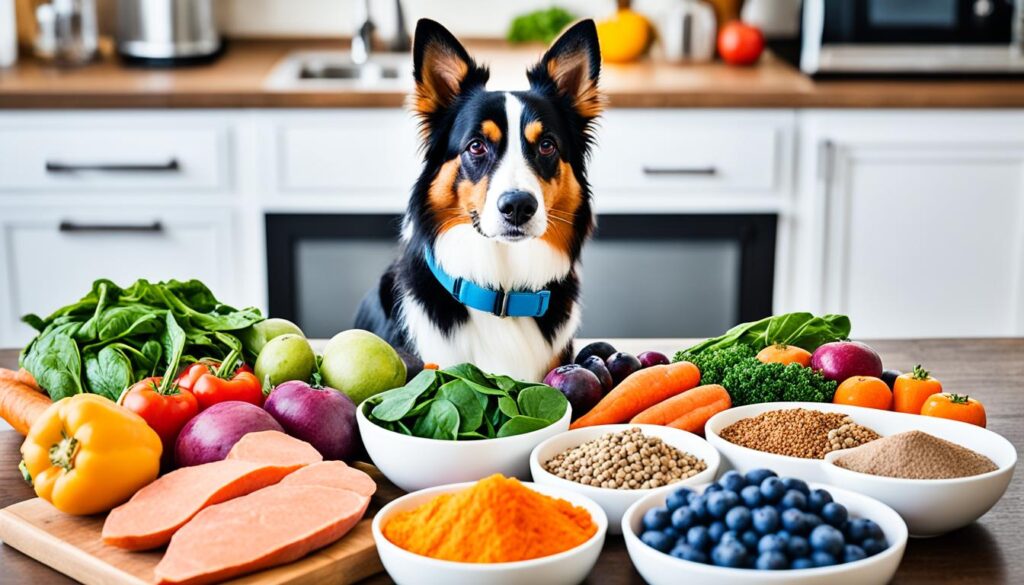
The Role of Kidneys in Canine Health
Kidneys are the powerhouse of dog health. They filter waste, regulate water content, balance electrolytes and produce hormones. Even with 5-8% functional kidney tissue dogs can survive for a long time with proper care and dog kidney diet recipes.
Signs and Symptoms of Kidney Failure
Recognizing CKD symptoms early can make a significant difference. Watch for:
- Increased thirst and urination
- Decreased appetite and weight loss
- Vomiting and diarrhea
- Pale gums
With early diagnosis and treatment, many dogs with CKD can maintain a good quality of life for months or even years.
The Importance of Nutrition in Managing Canine Kidney Disease
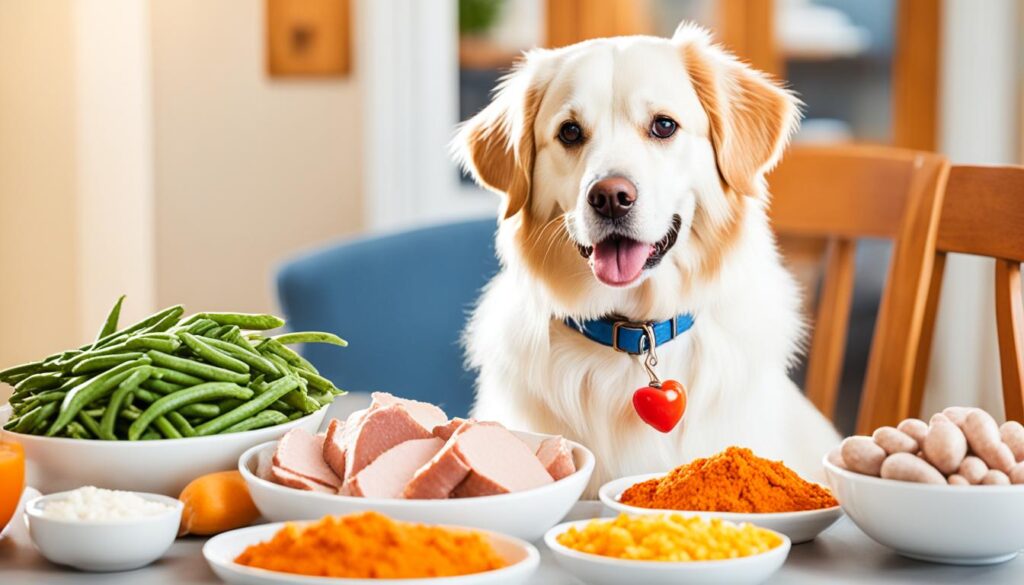
Proper nutrition is key in managing canine kidney disease. A balanced dog renal diet can greatly improve a dog’s life quality. Studies show dogs on a special diet lived 13 months longer than those on regular food.
Low protein dog food is often suggested for dogs with kidney issues. Research shows diets with about 35 g of high-quality protein per 1000 kcal help dogs with chronic kidney disease (CKD). This diet reduces kidney workload while still meeting nutritional needs.
Phosphorus restriction is also important in a kidney friendly diet. Dogs on a low phosphorus diet had a 75% survival rate vs 33% on a high phosphorus diet. Managing sodium and adding omega 3’s helps with CKD complications.
By making these changes we can slow down the disease and keep our dogs kidneys working better. Every dog is different. Work with a vet to find what’s best for your pet.
Key Nutrients for a Kidney Disease Dog Diet
When I plan a kidney disease dog diet I focus on specific nutrients that support kidney health. A vet diet for dogs with kidney issues requires consideration of protein, phosphorus, sodium and omega 3’s.
Protein: Quality and Quantity
I recommend high quality protein in moderate amounts. We want to reduce kidney workload while maintain muscle mass. A diet with 14-20% protein on a dry matter basis is usually good.
Phosphorus Restriction
Phosphorus is key. I aim for 0.2-0.5% phosphorus in the diet to slow down the progression of kidney disease. This means avoiding certain ingredients high in phosphorus.
Sodium Management
I recommend mild sodium restriction to keep blood pressure normal and not stress the kidneys. This means choosing low sodium ingredients and no added salt.
Omega-3 Fatty Acids
I add omega-3’s to the diet to reduce inflammation and oxidative stress. These good fats will slow down chronic kidney disease in dogs.
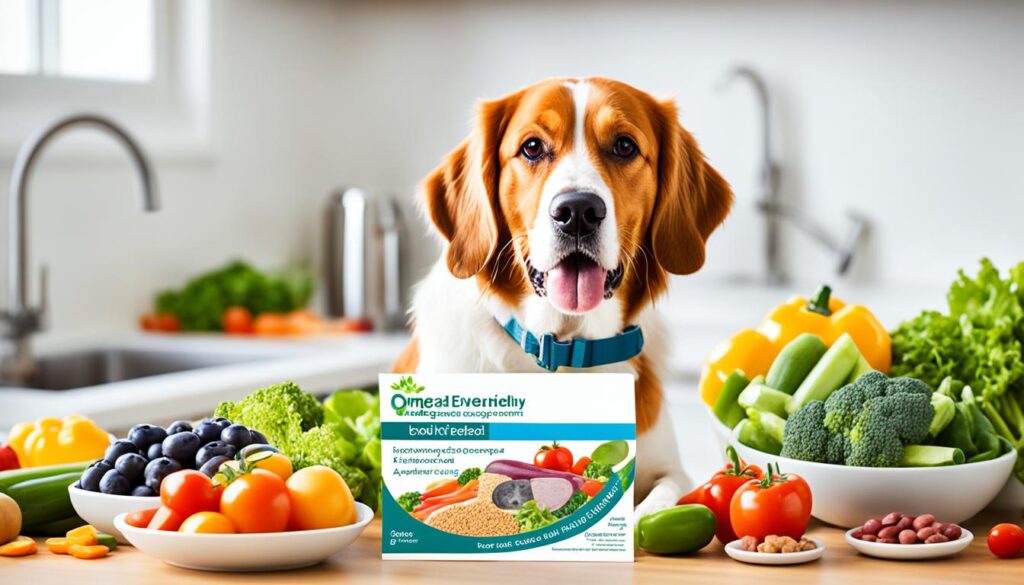
| Nutrient | Recommended Level | Benefits |
|---|---|---|
| Protein | 14-20% (dry matter) | Reduces kidney workload |
| Phosphorus | 0.2-0.5% | Slows CKD progression |
| Sodium | Mildly restricted | Supports blood pressure |
| Omega-3 Fatty Acids | Increased | Reduces inflammation |
By balancing these nutrients I can create a kidney friendly diet for my dog and slow down kidney disease.
Hydration: A Crucial Component of Kidney Health
Proper hydration is super important for dogs with kidney disease. Water is key to dog kidney health. Since chronic kidney disease makes it hard for kidneys to concentrate urine dogs get thirsty and pee more often.
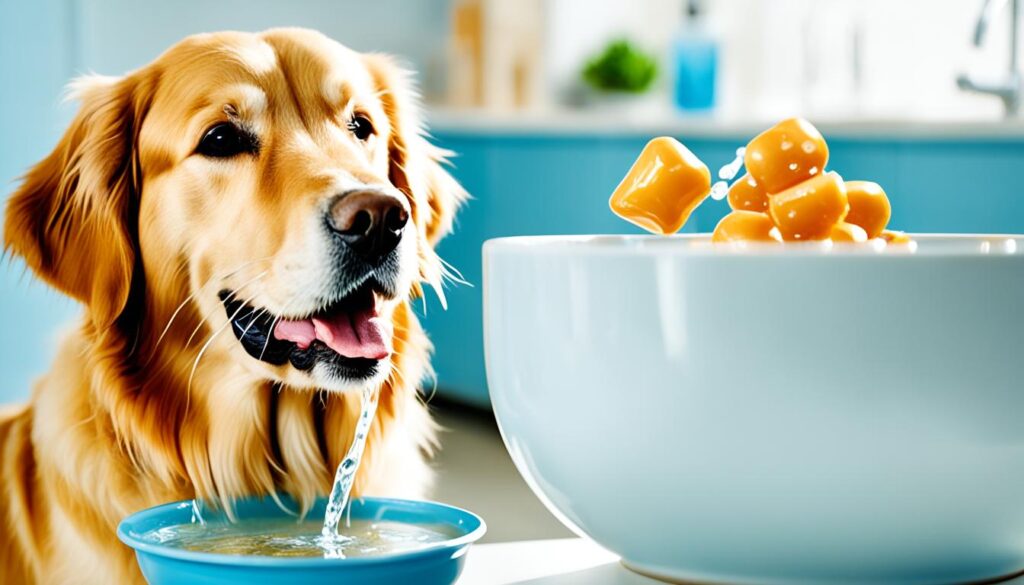
For kidney support I always recommend unlimited fresh clean water. This is a simple but important step. To make it more appealing change the water often and clean the bowls daily.
Here are some ways to get your dog to drink more water:
Add water to dry food
Offer ice cubes as treats
Use water fountains to make drinking more fun
Incorporate wet food into their diet
Dogs with kidney disease may need to drink more water than healthy dogs. This extra water helps remove toxins and support kidney function. By focusing on hydration we can make our dogs lives better and maybe slow down kidney disease.
Crafting a Balanced Meal Plan for Dogs with Kidney Disease
Creating a balanced meal plan for dogs with kidney disease is key. It helps manage symptoms and slow down the disease. I’ll look at commercial kidney support diets and homemade options to help you choose the best for your pet.
Commercial Kidney Support Diets
There are many vet-approved commercial diets for dogs with kidney problems. These diets have less protein, phosphorus, and sodium but more omega-3 fatty acids and antioxidants. Some top choices are Hill’s Prescription Diet k/d, Royal Canin Veterinary Diet Canine Renal Support, and Purina ProPlan Veterinary Diet NF Kidney Function.
Homemade Diet Options
Homemade diets for dogs with kidney failure give you control over what goes into the food. They use high-quality proteins low in phosphorus, like egg whites and certain poultry. It’s important to get advice from a vet nutritionist to make sure the diet is right for your dog. Here’s a simple recipe to try:
- 2 cups cooked white rice
- 1 cup cooked chicken breast, diced
- 1/4 cup cooked carrots, mashed
- 1 tablespoon fish oil
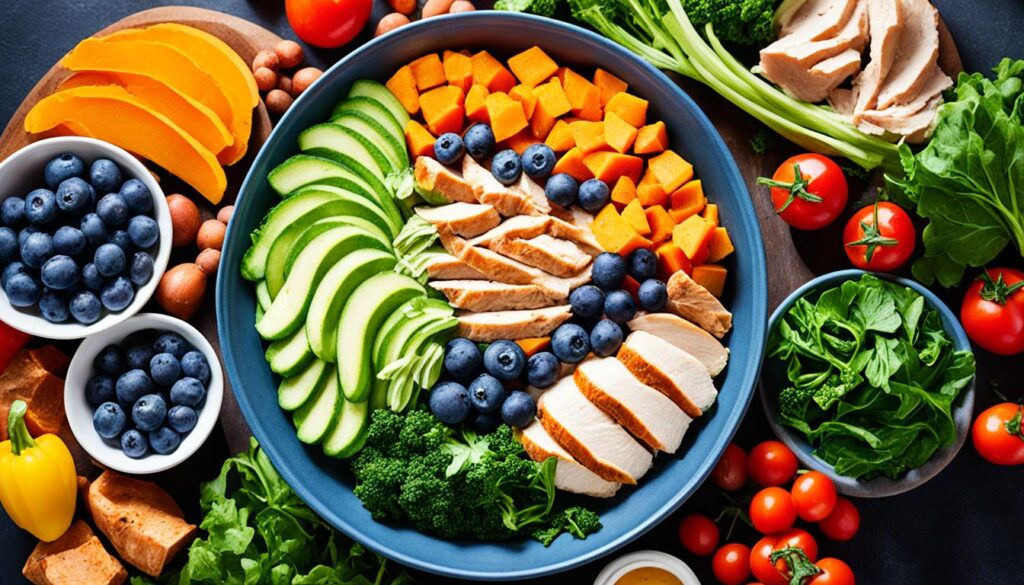
Transitioning to a New Diet
When starting a new kidney diet, do it slow. Mix a little of the new food in with what your dog is used to and increase it over 7-10 days. This will prevent stomach upset and make sure your dog likes the new food.
| Day | Old Diet | New Diet |
|---|---|---|
| 1-3 | 75% | 25% |
| 4-6 | 50% | 50% |
| 7-9 | 25% | 75% |
| 10 | 0% | 100% |
Supplements and Additives for Kidney Support
I’ve found some great kidney supplements for dogs that really help with kidney health. Kidney Support Gold is a top pick, 4.5 stars from over 1,200 reviews. It comes in 2 oz for dogs up to 50 lbs and 4 oz for bigger breeds.
Amount will depend on size. Under 30 lbs one drop per 2 lbs of body weight. Bigger dogs follow different dosing.
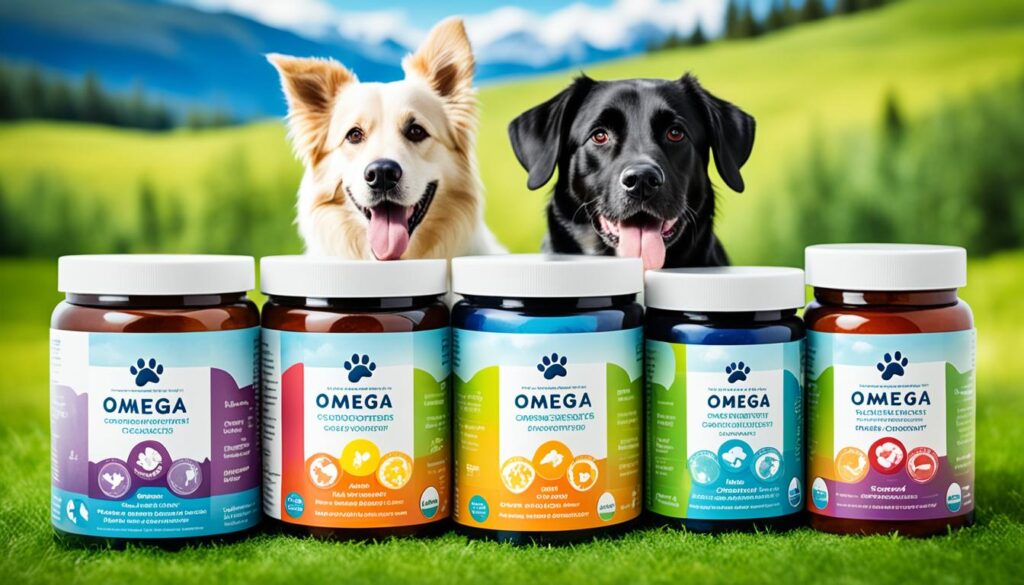
Kidney Support Gold is packed with strong herbal ingredients. Rehmannia root gives your dog essential vitamins. Cordyceps mycelium helps with kidney function. Astragalus root boosts the immune system. Dong Quai root helps with blood flow, often used with Astragalus for the best kidney support.
| Ingredient | Benefits |
|---|---|
| Rehmannia root | Vitamins C, A, B; tonic properties |
| Cordyceps mycelium | Kidney and liver function support |
| Astragalus root | Immune health, adaptogen |
| Dong Quai root | Blood flow, oxygen transport |
This supplement is made with organic herbs in an FDA-registered facility. Every batch is tested for quality. Always talk to your vet before starting any new supplements for your dog’s kidney health.
Monitoring and Adjusting the Kidney Disease Dog Diet
Managing a kidney disease dog diet needs regular attention and care. Regular check-ups and adjustments are key to keeping our furry friends healthy and happy.
Regular Veterinary Check-ups
Frequent vet visits are crucial for dogs with kidney disease. During these check-ups, vets perform blood tests to check kidney function and nutrient levels. These tests help see if the veterinary diet for dogs is working or if it needs changes.
Tracking Your Dog’s Progress
I always keep an eye on my dog’s weight, appetite and overall condition. This will tell me how well the kidney disease dog food is working. Here are some things I monitor:
- Energy levels
- Coat condition
- Water intake
- Urination frequency
Making Necessary Diet Modifications
As the disease progresses, the diet may change. I work with my vet to make those changes. This may mean more protein restriction or other nutrient changes based on blood work.
| Nutrient | Initial Diet | Adjusted Diet |
|---|---|---|
| Protein | Moderate | Lower |
| Phosphorus | Restricted | Very Low |
| Sodium | Low | Very Low |
| Omega-3 | Increased | High |
Remember every dog is different. Stay tuned, work with your vet and be ready to adjust your dog’s diet as needed. We can help our furry friends live comfortably with kidney disease.
Special Considerations for Different Stages of Kidney Disease
When managing a canine renal failure diet, it’s key to adjust the diet based on the disease stage. Early action can greatly improve a dog’s kidney health.
Studies show that starting a renal diet early when creatinine is between 2.0 and 3.1 can delay uremic crisis by 5 months. That’s how important early diet changes are for kidney disease.
As kidney disease worsens, dietary needs evolve. In later stages, reducing protein and controlling phosphorus becomes vital.
| CKD Stage | Dietary Focus | Protein Level | Phosphorus Restriction |
|---|---|---|---|
| Stage 2 | Moderate adjustments | Slightly reduced | Mild |
| Stage 3 | Significant changes | Moderately reduced | Moderate |
| Stage 4 | Intensive management | Severely reduced | Strict |
Every dog is different. Regular vet visits are important to adjust the diet as the disease progresses. This will give your dog the best kidney health at each stage.
Conclusion
Managing a kidney disease dog diet is tricky but it’s key to their health. Studies show that the right diet can add years to a dog’s life with chronic kidney disease. For example, research by Ross and colleagues found that cats on a kidney diet lived 633 days and those on regular diets lived 264 days.
Protein is key in a kidney disease dog diet. The National Research Council says dogs need the right amount of protein. Enough to keep their muscles strong but not too much to harm their kidneys.
The main goal of a kidney disease dog diet is to slow down the disease and symptoms. The American College of Veterinary Internal Medicine recommends reducing protein for some dogs with kidney issues. Working with a vet and monitoring your dog’s health will help create a diet plan that keeps their kidneys and overall health good.
